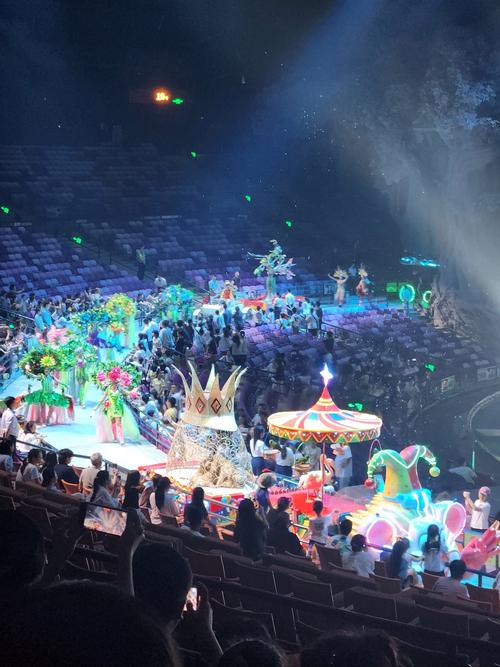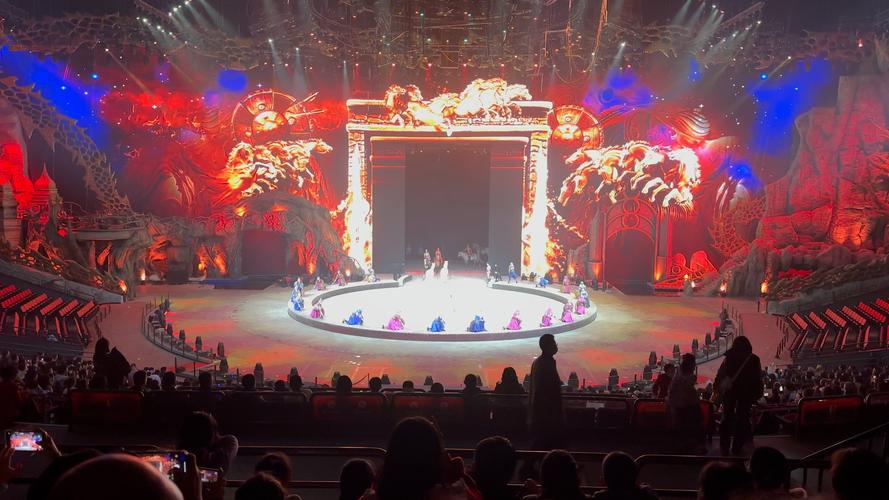行前准备 (非常重要!)
充分的准备是自驾游愉快的基础。

(图片来源网络,侵删)
车辆检查
- 轮胎: 检查胎压是否正常,有无磨损或鼓包。
- 机油、冷却液、刹车油: 确保液位在正常范围。
- 灯光: 检查大灯、转向灯、刹车灯是否工作正常。
- 雨刮器: 确保雨天视野清晰。
- 备胎和工具: 检查备胎胎压,确保千斤顶、三角警示牌等随车工具齐全。
必备物品清单
- 证件类:
- 身份证/港澳通行证(针对港澳游客): 必备!入园和住宿都需要。
- 驾驶证、行驶证: 自驾必备。
- 预订确认信息: 马戏门票、酒店订单等截图或打印件。
- 电子设备:
- 手机、充电器、充电宝: 保证导航和拍照有电。
- 车载充电器/逆变器: 长途行驶必备。
- 行车记录仪: 记录旅途,保障安全。
- 个人物品:
- 舒适的衣物和鞋子: 马戏场内空调较足,可备一件薄外套,穿舒适的鞋子,方便行走。
- 防晒用品: 防晒霜、太阳镜、遮阳帽(如果白天在园区游玩)。
- 雨具: 雨伞或一次性雨衣,广东天气多变。
- 少量现金: 以备不时之需(虽然现在移动支付很普及)。
- 药品类:
- 晕车药: 如果有人晕车,提前服用。
- 创可贴、消毒用品: 防止小磕碰。
- 个人常用药: 如感冒药、肠胃药等。
门票预订
- 强烈建议提前在官方渠道预订! 可以在“长隆旅游”官方App、微信小程序或官方网站购买。
- 选择合适的票种:
- 日场票: 通常是下午场,性价比高。
- 夜场票: 氛围更佳,灯光效果更炫酷。
- VIP座位: 价格更高,但视野极佳,座位更宽敞舒适,体验感最好,如果预算充足,推荐选择。
交通路线规划
出发前导航
- 打开手机地图App(如高德地图、百度地图),直接搜索 “长隆国际大马戏”。
- App会根据您的实时位置规划最佳路线,建议在出发前就设置好导航,并预估好路况时间。
自驾路线参考
- 广州市区出发:
- 路线:市区 → 华南快速干线 → 汉溪长隆出口 → 沿指示牌前往长隆停车场。
- 时间:不堵车约40-60分钟。
- 深圳/东莞出发:
- 路线:G4京港澳高速 → G1508广州绕城高速 → 汉溪长隆出口 → 沿指示牌前往长隆停车场。
- 时间:约1.5 - 2小时。
- 佛山/珠海出发:
- 路线:通过相应高速路网 → G1508广州绕城高速 → 汉溪长隆出口 → 沿指示牌前往长隆停车场。
- 时间:约1 - 1.5小时。
停车信息
- 停车场: 长隆国际大马戏有专门的地下停车场,非常方便。
- 收费: 目前停车费约为 10元/小时,封顶 50元/天(具体价格以现场公示为准)。
- 车位: 周末和节假日车位紧张,建议尽早到达,预留充足的停车时间。
游玩当日行程安排
纯看马戏(半日游)
- 下午 14:00 - 15:00: 从家出发,预留充足时间应对交通和停车。
- 下午 15:00 - 15:30: 到达停车场,停车、步行至马戏城入口。
- 下午 15:30 - 16:30: 自由活动时间,可以:
- 在园区内逛逛,拍拍照。
- 在纪念品商店挑选周边。
- 找个地方休息,吃点小食(园内有餐厅和小吃摊)。
- 下午 16:30 - 17:00: 入场,找到自己的座位,提前入场可以选到更好的拍照机位,并欣赏暖场表演。
- 下午 17:30 (或根据开场时间): 马戏正式开始! (日场通常在17:30或18:00开演)
- 晚上 19:00 左右: 马戏表演结束(约90分钟)。
- 晚上 19:00 之后: 带着满满的兴奋和回味,自驾愉快地回家。
马戏+长隆其他园区(一日游)
- 上午 09:00: 从家出发,前往长隆欢乐世界或长隆野生动物世界。
- 上午 10:00 - 12:30: 在欢乐世界体验刺激过山车,或在野生动物世界乘车区看珍稀动物。
- 中午 12:30 - 14:00: 在长隆园区内解决午餐,可以选择园区内的餐厅,也可以自驾到附近的商场(如奥园城市天地、万达广场等)用餐,选择更多样化。
- 下午 14:30: 驱车前往长隆国际大马戏,停车入场。
- 下午 15:00 - 17:00: 自由活动,吃点下午茶,逛逛商店。
- 下午 17:30 - 19:00: 观看精彩的马戏表演。
- 晚上 19:00 之后: 一日游结束,自驾回家,如果住得远,可以考虑在番禺或市区住一晚。
游玩小贴士
-
关于座位:
- 黄金区域: 中间几排的中间座位,视野无遮挡,是最佳观看位置。
- 侧边座位: 视角会有点偏,但也能看到大部分表演。
- 后排座位: 需要仰视,可能会错过一些细节,但氛围感好。
- VIP座位: 通常在中间几排,空间大,服务好,含茶点,追求极致体验的首选。
-
观看礼仪:
- 准时入场: 迟到可能会影响他人,且需在节目间隙由工作人员引导入场。
- 保持安静: 表演期间请将手机调至静音或震动,不大声喧哗,尊重演员和其他观众。
- 禁止拍照/录像: 非常重要! 出于版权和演员安全考虑,马戏表演全程严禁使用闪光灯拍照和录像,被发现会被工作人员制止,甚至请出场,请尽情用眼睛欣赏,把美好留在记忆里。
-
餐饮建议:
- 马戏城内有餐厅和售卖点,但价格相对较高。
- 可以自带一些未开封的零食和水(部分场馆可能不允许,建议提前确认)。
- 也可以选择在看完马戏后,到附近的大型商业区享受一顿丰盛的晚餐。
-
其他体验:
 (图片来源网络,侵删)
(图片来源网络,侵删)- 提前到达: 可以欣赏到开演前的暖场表演,氛围很好。
- 与演员互动: 部分环节演员会与观众互动,有机会被选中上台,增加趣味性。
温馨提示
- 关注天气: 出发前查看天气预报,做好防晒或防雨准备。
- 周末/节假日: 人流量巨大,停车位紧张,建议比平时更早出发。
- 安全第一: 游玩和行车过程中,请时刻注意人身和财物安全。
- 返程规划: 考虑到返程高峰期的交通拥堵,合理安排时间,避免太晚回家。
祝您和家人朋友在长隆国际大马戏度过一个精彩、刺激、难忘的一天!旅途愉快!

(图片来源网络,侵删)




